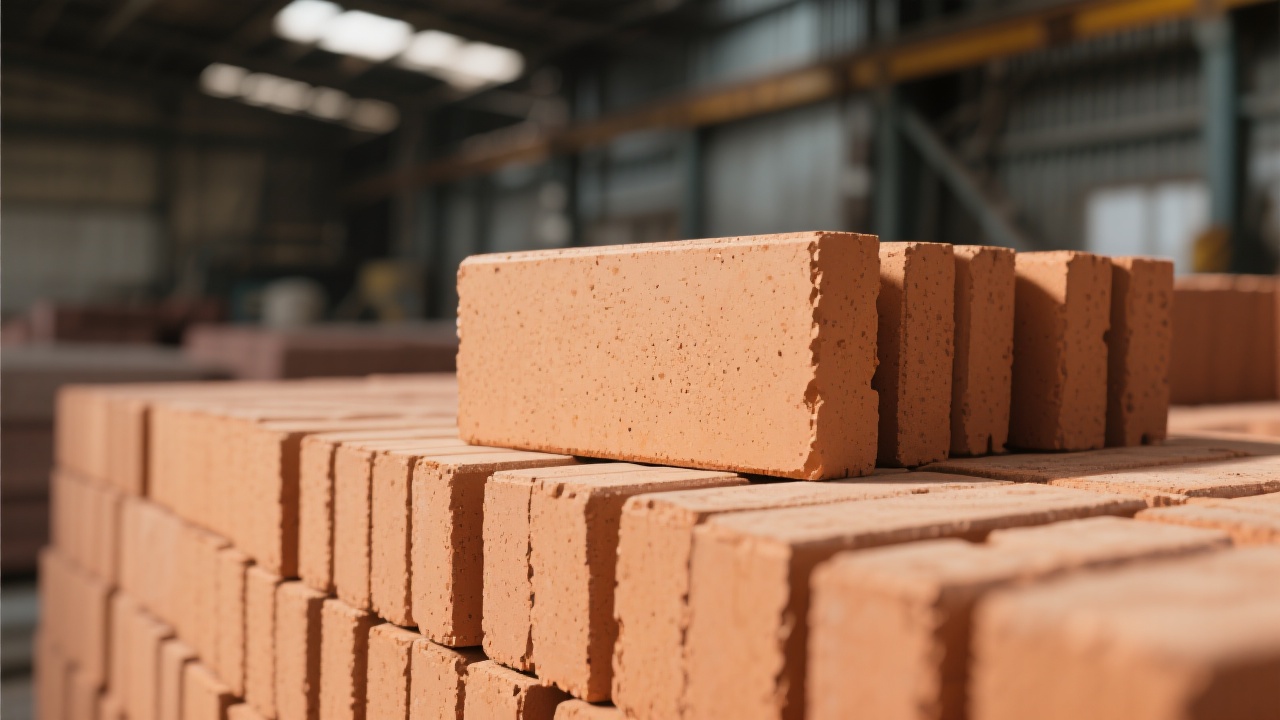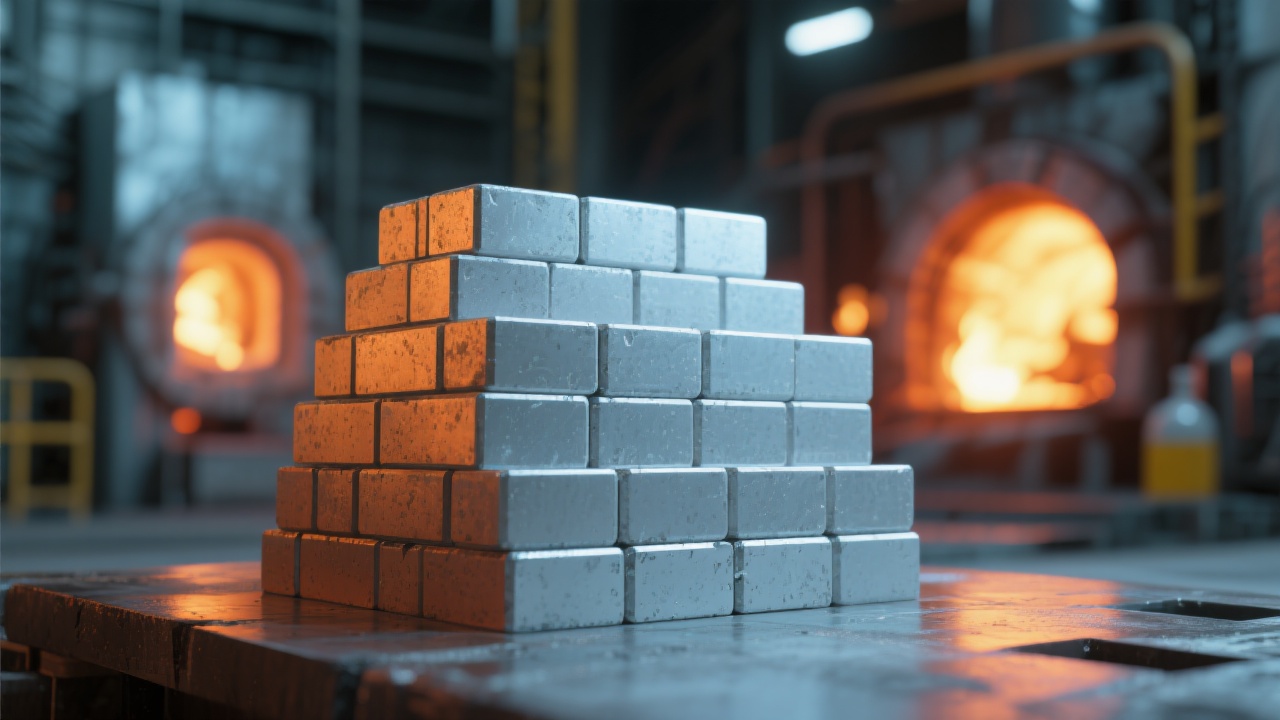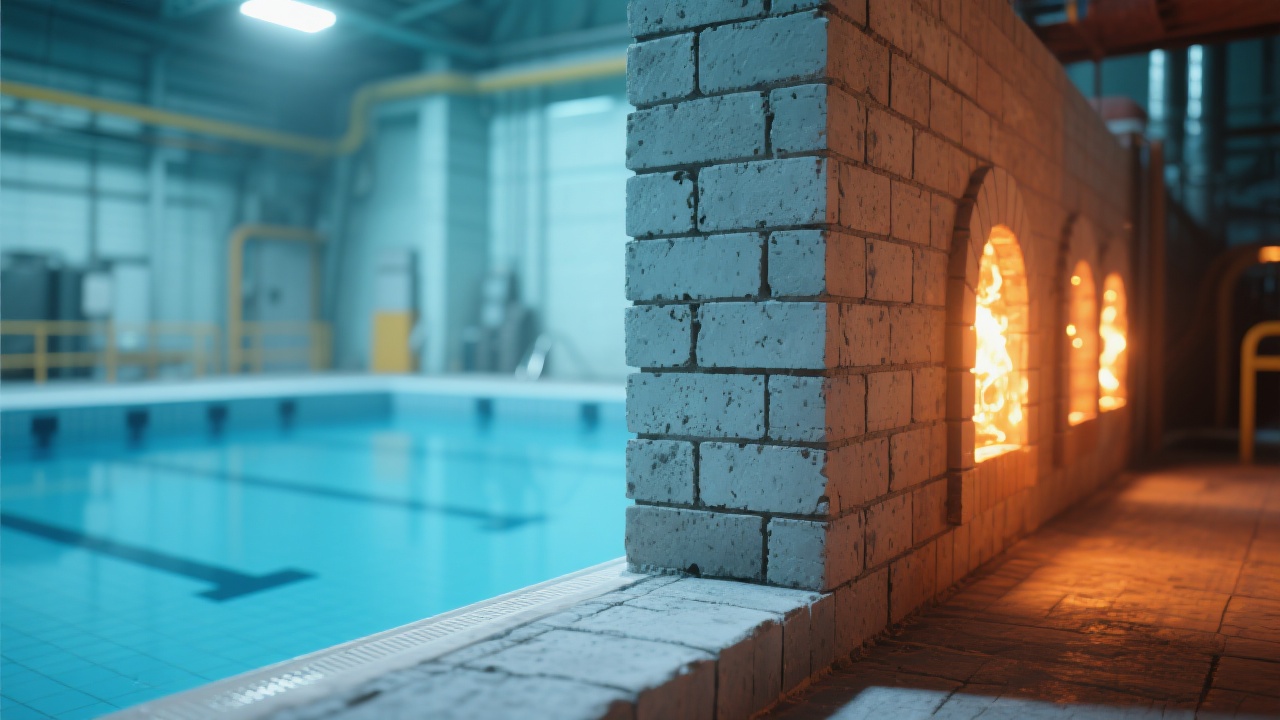
In the glass melting industry, the reliability of glass furnaces is crucial for continuous production. However, common problems such as corrosion, crystallization, and the need for frequent shutdowns for maintenance often plague manufacturers. These issues not only reduce production efficiency but also increase operating costs. So, is there a solution to these problems?

Fused AZS33# blocks are innovative refractory materials designed specifically to enhance the durability of the sidewalls and upper structures of the working pool in glass furnaces. The raw materials of these blocks are a unique combination of high - content zirconia and pure alumina. Through an advanced electro - fusion process, a dense microstructure is formed.
This dense structure gives the fused AZS33# blocks excellent chemical stability and thermal shock resistance. For example, in high - temperature environments within glass furnaces, the chemical stability of these blocks prevents them from reacting with the glass melt, significantly reducing the corrosion and crystallization problems. According to industry standard tests, the chemical stability of fused AZS33# blocks is 30% higher than that of traditional refractory materials.
The sidewalls of the working pool are directly in contact with the high - temperature glass melt, which requires high corrosion resistance. Fused AZS33# blocks, with their excellent corrosion resistance, can effectively protect the sidewalls. Compared with traditional materials, the service life of AZS33# blocks on the sidewalls is extended by about 2 - 3 years.
In the feeding channels, the glass melt has a high flow rate, which can cause serious erosion to the refractory materials. Fused AZS33# blocks have a smooth surface and high wear resistance, which can withstand the scouring of the glass melt. The wear rate of AZS33# blocks in the feeding channels is only 1/3 of that of traditional materials.
At the trough bottoms and hopper tops, temperature changes are frequent, which requires good thermal shock resistance. Fused AZS33# blocks can maintain their structural integrity under rapid temperature changes. In actual applications, the thermal shock resistance of AZS33# blocks allows them to withstand more than 500 thermal cycles, while traditional materials can only withstand about 200 cycles.

| Performance Indicators | Fused AZS33# Blocks | Traditional Refractory Materials |
|---|---|---|
| Corrosion Resistance | 30% higher | - |
| Thermal Shock Resistance | More than 500 cycles | About 200 cycles |
| Service Life | 2 - 3 years longer | - |
From the above comparison, it is obvious that fused AZS33# blocks have significant advantages in improving the reliability of glass furnaces and reducing maintenance costs.

In conclusion, fused AZS33# blocks are a revolutionary solution for the glass melting industry. They can effectively solve the common problems in glass furnaces, improve production efficiency, and reduce operating costs. If you are a procurement or technical professional in the glass melting industry, don't miss this opportunity to upgrade your glass furnaces.
Are you facing similar problems in your glass melting production? Share your experiences and thoughts in the comments below. And click here to learn more about how fused AZS33# blocks can transform your glass furnaces!

